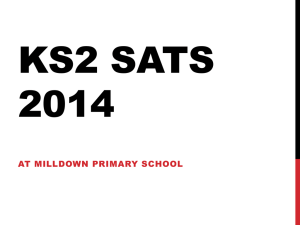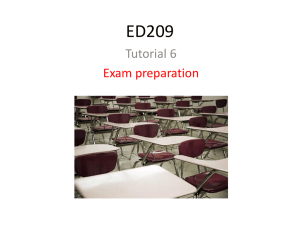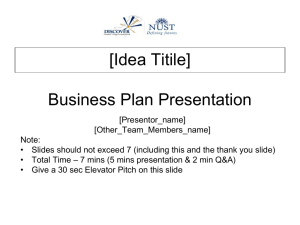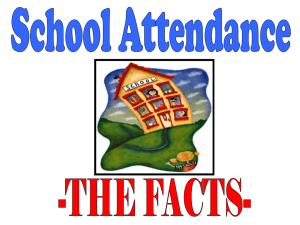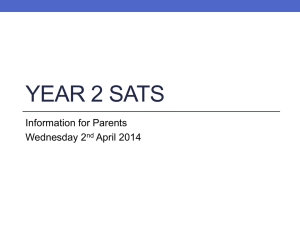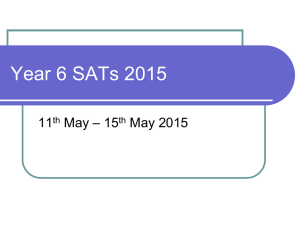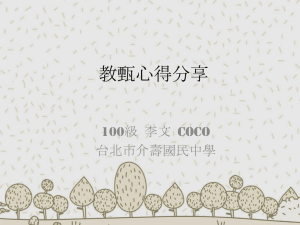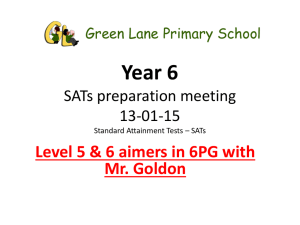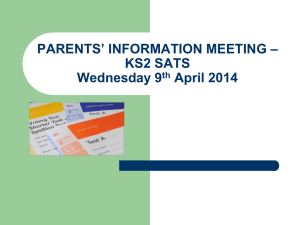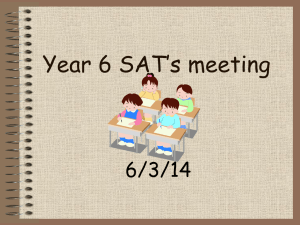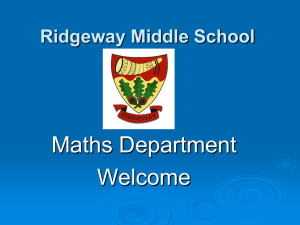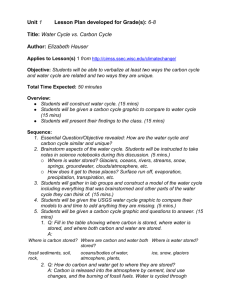Year 6 SATs 2009 - Somerset Learning Platform
advertisement
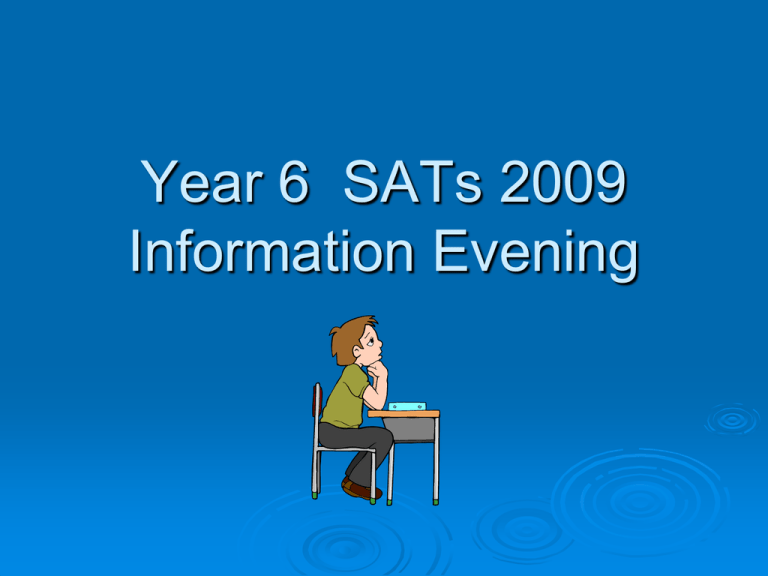
Year 6 SATs 2009 Information Evening Why do we do SATs? Standard Assessment Tests are designed to test pupils’ knowledge and understanding of the Key Stage 2 curriculum. They provide a snapshot of attainment in: English Mathematics Science What do SATs tell us? SATs results inform future teachers of your child’s ability and standard of work They also show the teachers which area of work your child needs to focus on next They help the secondary school set individual targets for your child’s needs At the end of Year 6 your child’s teacher will assess their progress which will also inform the secondary school. SATs Levels There is no pass or fail mark At the end of Key Stage 2 the average child will be expected to achieve a level 4 in the tests The levels range from level 3 to level 5. Key Information It is necessary for ALL children to be in school in the run up to the tests, when revision is being undertaken It is very important that ALL children are in school during SATs week The tests cannot be taken at any other time If your child is unwell on the morning of a test, please contact the school immediately. Arrangements Monday 11th May Tuesday 12th May Wednesday 13th May Thursday 14th May Science A (45 mins) Writing Short Task (20 mins) Spelling Test (10 mins) Writing Long Task (45 mins) Reading Test (60 mins) Mathematics Mathematics Test A Test B (45 mins) (45 mins) Science B (45 mins) Mental Arithmetic (20 mins) Friday 15th May Science Children may be asked: Describe how an investigation is carried out What factors need to be controlled and measured Predict outcomes and present results Explain whether evidence is significant, reliable and valid. They are also tested on their knowledge of: Living Things Physical Processes •Life processes •Light and Sound •Food chains •Gravity and Forces •Classification •Electricity and Magnetism •Teeth and Bones •Earth in Space •Nutrition •Organs of the Body Materials •Plants •Thermal conductors •Liquids, Solids, Gases •Changing and Separating Materials Over to you… Look at the Science Test papers and find examples of questions that test the children’s knowledge of: Living Things Physical Processes Materials English Writing Test Children have to complete a long and short task Handwriting will be assessed as part of the longer writing task. Reading Test The test will include different texts such as stories, poems, explanations, interviews and reports that the children have to answer questions about. Spelling Test There are 20 words that fit into a text. Over to you… The spelling test Spend a few minutes looking through the reading test paper. Mathematics There are three maths tests: Test A (non-calculator paper) Test B (calculator paper) Mental Arithmetic Over to you… Mental Arithmetic Test Have a go at the questions on the sheet. Between Now and Then… Preparation for the tests is very important Class teachers will continue to give practice tests throughout the coming term Children will review their answers, be told their results and get given tips for improvement Homework will support the concepts that will be needed in the tests, acting as revision. How can you support your child? Help them revise from their Science Revision Guides Give them quick fire recall tests in multiplication and division tables Visit some good quality websites eg. BBC Bitesize, My Maths, Kent ICT Plan fun activities at the weekend to help your child relax as they are working hard at school during the week. Special Arrangements The school decides on, and makes appropriate arrangements for children with learning needs and if this affects your child, you will be contacted by Mrs McGrouther. Any Questions?
